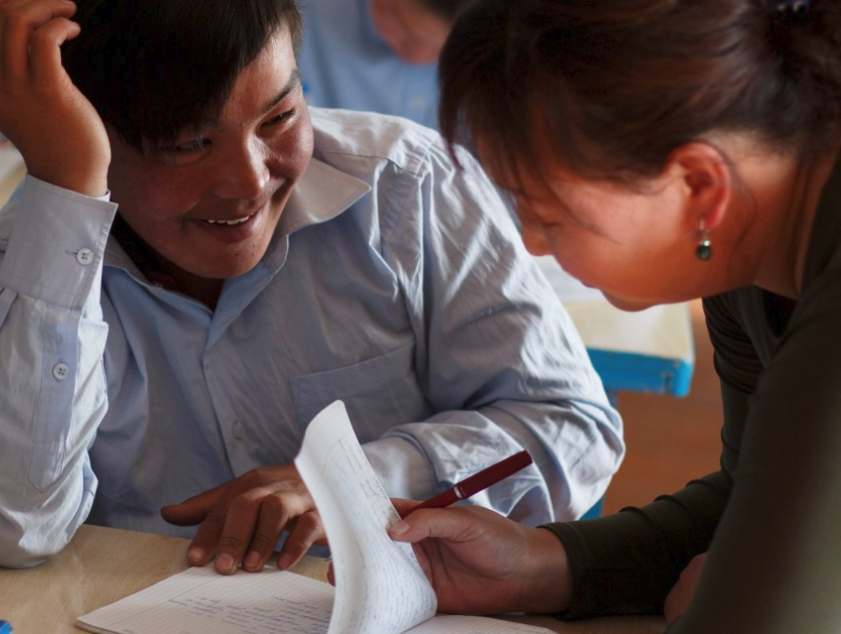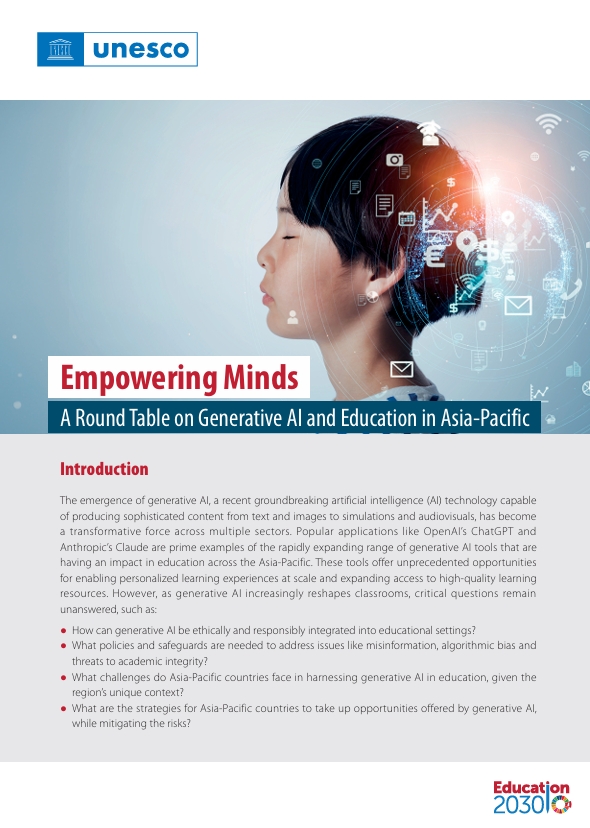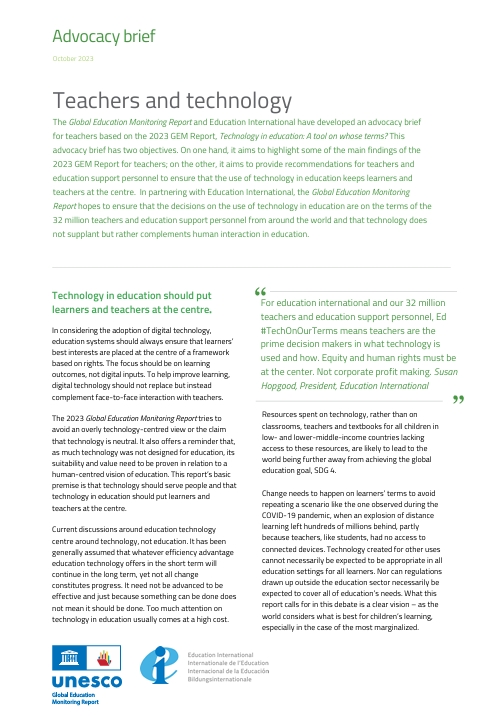By: Esther Care, Helyn Kim, and Alvin Vista for Brookings (part of the Education Plus Development Series), Thursday, June 14, 2018
How can we teach and assess 21st century skills in classrooms? How can teachers adapt their teaching and lesson plans to integrate skills like critical thinking, problem solving, and collaboration? Recently, education stakeholders from Cambodia, Mongolia, and Nepal came together to share their resources, learn from each other, and tackle these big challenging questions—a true model of country collaboration.

The first in-country 5-day regional workshop for the Optimizing Assessment for All (OAA) project was hosted by the Nepal National Technical Team through their Education Review Office in Kathmandu from May 28 to June 1, 2018. The workshop brought together the core members of Technical Teams from Cambodia, Mongolia, and Nepal, the project team from The Brookings Institution, and technical partners. A welcome addition was the teacher team from Nepal from four schools participating in the project.

Joint Secretary Dr. Lekha Nath Poudel, of Nepal, welcomed participants and Devi Ram Archaya, head of the host team, ensured that the workshop was off to a great start. To establish a firm footing, each technical team gave an overview of their formal education system’s integration of transversal competencies and how classroom assessment is managed. Esther Care from The Brookings Institution then outlined project objectives with particular focus on classroom assessment and links to pedagogical strategies.
Moving into the substantive work, curriculum audit outcomes across the three countries were reviewed—in order to develop common assessment tasks, it is essential to identify common topics, themes, and levels of difficulty across Grade 5-6 curricula in the countries. Next on the table was a focus on key principles of assessment frameworks and which of these are particularly relevant to this work.
One of the key goals and outcomes of the week’s work was to agree on common definitions and descriptions of the three skills selected for OAA’s work in Asia—critical thinking, collaboration, and problem solving. As seen in the photos, the participants modeled these skills effectively not only during these sessions but throughout the week! Modeling is one of the key strategies for teachers to use in what is an increasing emphasis on transversal competencies (21st century skills) in education systems globally.

As participants delved more deeply into the nature and elements of the skills, the implications not only for assessment but also for teaching in the classroom became very clear. This was substantiated through the group’s visit to some of the participating schools—observing lessons and the culture of the classrooms. One school was in the Kathmandu district (north) and the other was in the Patan district (south). All schools were in an urban or semi-urban setting and Grades 5 and 6 classes were observed. The reality of the country’s very real investment in the project was forefront here—with the principals from each school having released their teachers for five days to participate in the OAA.
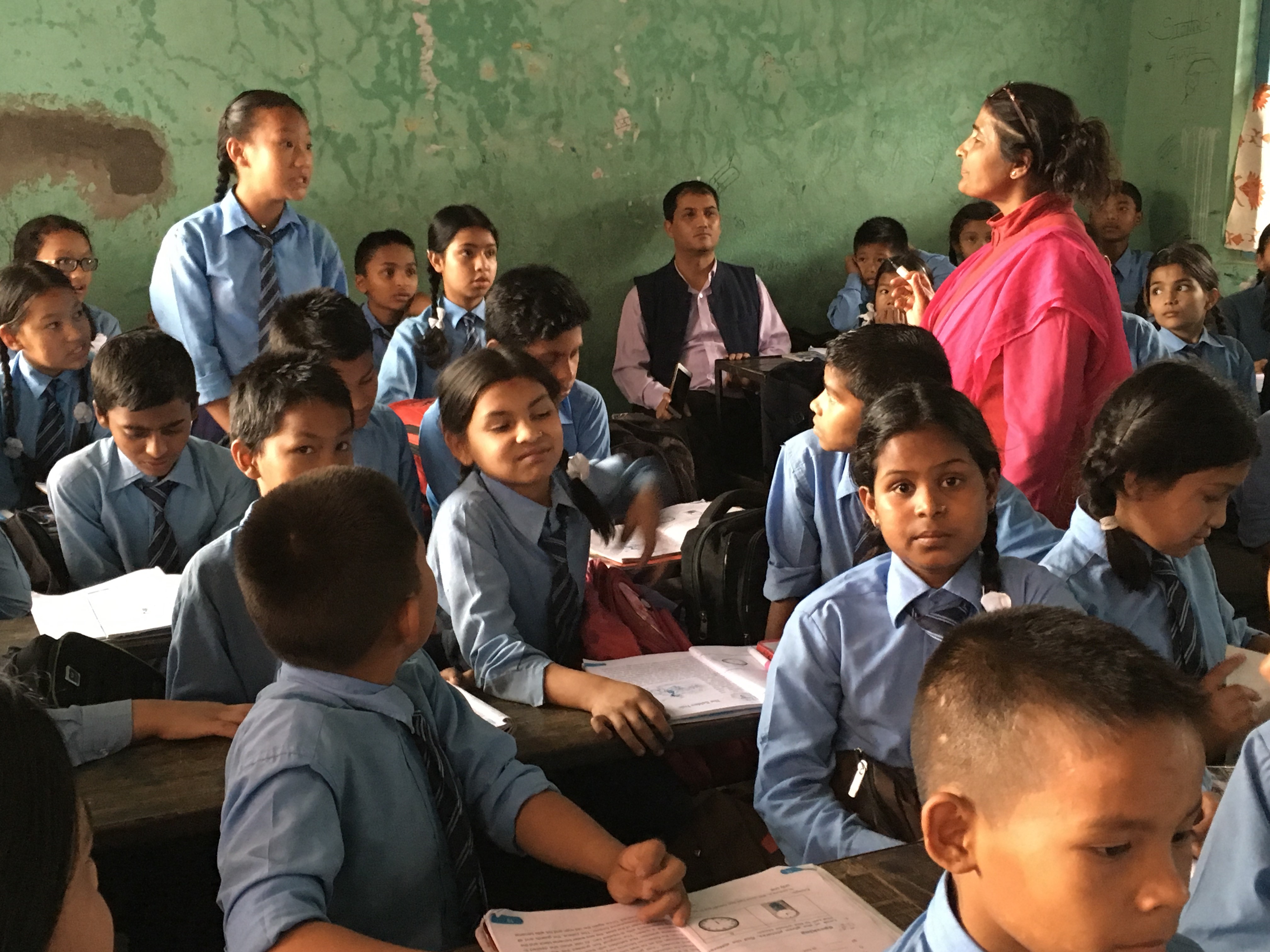
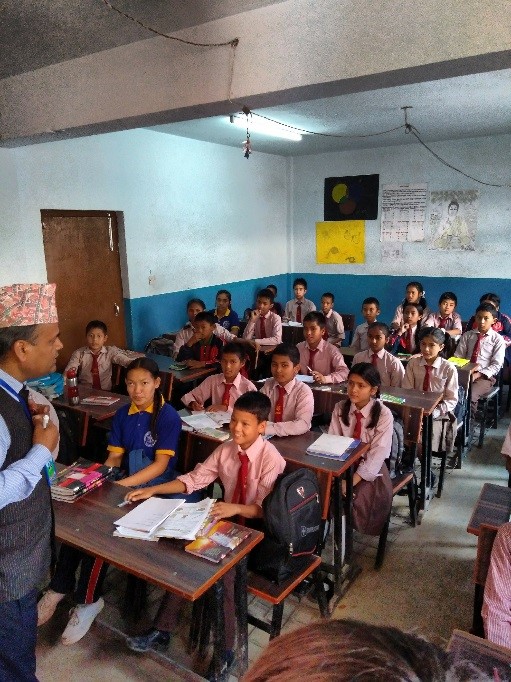

Towards the end of the week, the classroom teachers discussed current classroom practices surrounding 21st century skills and how classroom contexts in Nepal affect assessment practices. It is notable that the high level of engagement and collaboration by the teachers reflect the knowledge and understanding they developed during the entire workshop. The comment by one of the teachers expressed a common sentiment among the group:
“One of the most important things I have learned was the types of problems in problem solving or categorization of problem situation. Same in critical thinking and collaboration. It makes easier to think about item development.”
The closing session included a summary of workshop outcomes and most importantly, the next steps. The technical teams have a lot of work to do with their teacher partners in identifying opportunities within their curricula for the embedding of classroom assessment tasks.
One of the key characteristics of OAA is the principle of collaboration of educators from different countries. The project is designed to identify common ground across national curricula, identify similar conceptualizations of the nature of skills, work with teachers to draft assessment concepts, and bring the technical skills of the National Technical Teams to fine-tune assessment tasks.
The workshop concluded with a representative of each team providing a closing comment and Dr. Poudel providing the official closing remarks—as well as the presentation of beautiful Nepali pashminas in thematic shades!

